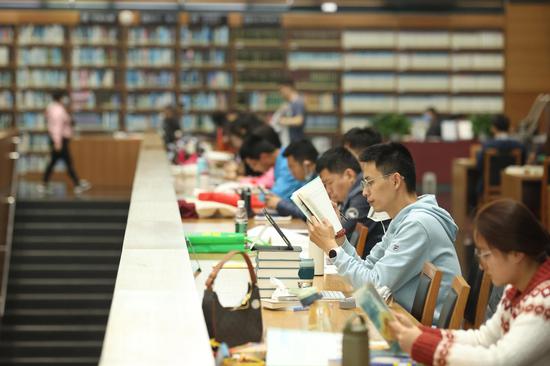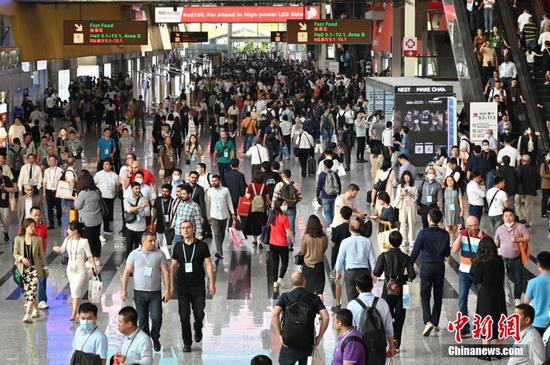China's State Council has proposed expediting legislation on protecting overseas Chinese's rights and interests in its report submitted to the top legislature for deliberation as the report said that more than 60 million Chinese are residing in nearly 200 countries and regions, with the number of new immigrants for further study and business investment continuing to grow.
The report was submitted on Monday to the second session of the 14th National People's Congress Standing Committee for deliberation. China will strengthen the establishment of public service systems for overseas Chinese, integrate the relevant services for overseas Chinese into the national public service plan, in order to provide universal and equal services for overseas Chinese, returned overseas Chinese and their family members, according to the report.
Chen Xu, director of the Overseas Chinese Affairs Office of the State Council said in the report that new situations, new characteristics and new trends have emerged, such as the composition of overseas Chinese undergoing profound changes, and their economic and technological strength steadily increasing. Meanwhile, overseas Chinese have become more aware of their integration into mainstream society and their social status has gradually improved, according to a report by China News Service (CNS) on Wednesday.
The cultural identity among overseas Chinese has been strengthened, and friendship has been increasing, according to the CNS report.
China continues to promote the development of public services for overseas Chinese during recent years. China has established around 1,000 community-level platforms nationwide to provide better services for overseas Chinese, and also built a legal advisory organization to help overseas Chinese businessmen to resolve business disputes and create a favorable environment for overseas Chinese to invest, according to the report.
Since 2015, 10 of the provincial-level regions across the country, including South China's Guangdong Province, East China's Fujian Province and Shanghai, and Central China's Hubei Province have issued regulations on the protection of overseas Chinese respectively, the report noted.
Some countries such as Russia and South Korea have advanced legislation for their overseas nationals, which has played a positive role in promoting economic and social development of these countries and introducing talent overseas, the report noted.
The international practices have provided a useful reference for China to use legislation to better protect overseas Chinese, according to the report.
China adopted the Law on the Protection of the Rights and Interests of Returned Overseas Chinese and the Family Members of Overseas Chinese in 1990, which was amended in 2000.


















































 京公网安备 11010202009201号
京公网安备 11010202009201号